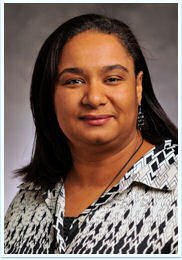By DELIA GILLIS
Guest Columnist
(Warrensburg, Mo., digitalBURG) — Fall is my favorite time of year with football and soccer games, falling leaves, bonfires and cooler temperatures. It is also time for us to return to campus for another year of learning and growing.
This year in particular seems to be a year for all of us to learn more about each other and the pressing issues that not only affect us now, but for the generations that follow. After such a tumultuous summer, this column is really an open invitation for conversation and dialogue. It is an invitation to listen and develop empathy, understanding and compassion for others.
When I finished my last year as a Master of Arts student at UCM in 1992, I enrolled in an International Law class; one of the “hot button issues” of the day was the Haitian Refugee Crisis. Impassioned by what I believed to be an affront to humanity — refusing to help or shelter refugees including women and children from the perilously high seas on makeshift rickety boats. I took up the cause in my first written assignment including conducting extra research at what was then Ward Edwards Library. While I thought I wrote a stellar essay, my professor unfortunately did not.

Delia Gillis
For the second essay we could pick a new topic or respond to comments from the first assignment. I chose the latter. In the corner of my neatly typed and graded paper was one scribbled note — “You are President Bush’s (Sr.) legal advisor, explain how international law supports the ‘interdiction’ of Haitian refugees at sea allowing them not to enter the United States.”
Part of me was offended, actually I was nauseous by that position because at my core I am a human rights advocate, but part of me was intrigued by the question.
I did not make another trip to the library, but I did take time to sift through all of the arguments and case law to now plead the president’s case. This time my professor was not only impressed by my arguments, but I earned not just any “A” but 100 percent. I am proud of both papers, but for different reasons and still have them tucked away in my files almost 25 years later.
The lesson I learned in that process is that whatever your position, whatever your cause, your case is made stronger by understanding all sides of the issues. You can disagree respectfully, but informed you must be as an educated citizen in a democracy as scholar, statesman and slave owner Thomas Jefferson argued.
In the center I direct on campus, we focus on issues in the African Diaspora like the historical Haitian Refugee Crisis and the contemporary issues like the Flint Water Crisis, Hurricane Katrina and the Black Lives Matter Movement, but that does not mean we do not discuss and understand that Blue Lives and All Lives Matter. The issues of race, poverty, privilege and inequality are complicated and cannot be understood in just one sound bite, hash tag or tweet. These issues, among so many others, require research, earnest contemplation and open dialogue. Use your time wisely on campus to do just that. Find issues that matter to you. Plead your cause, but be open to listening and learning about the other side of the coin. It may not always be easy or comfortable, but change never is.


Leave a Reply